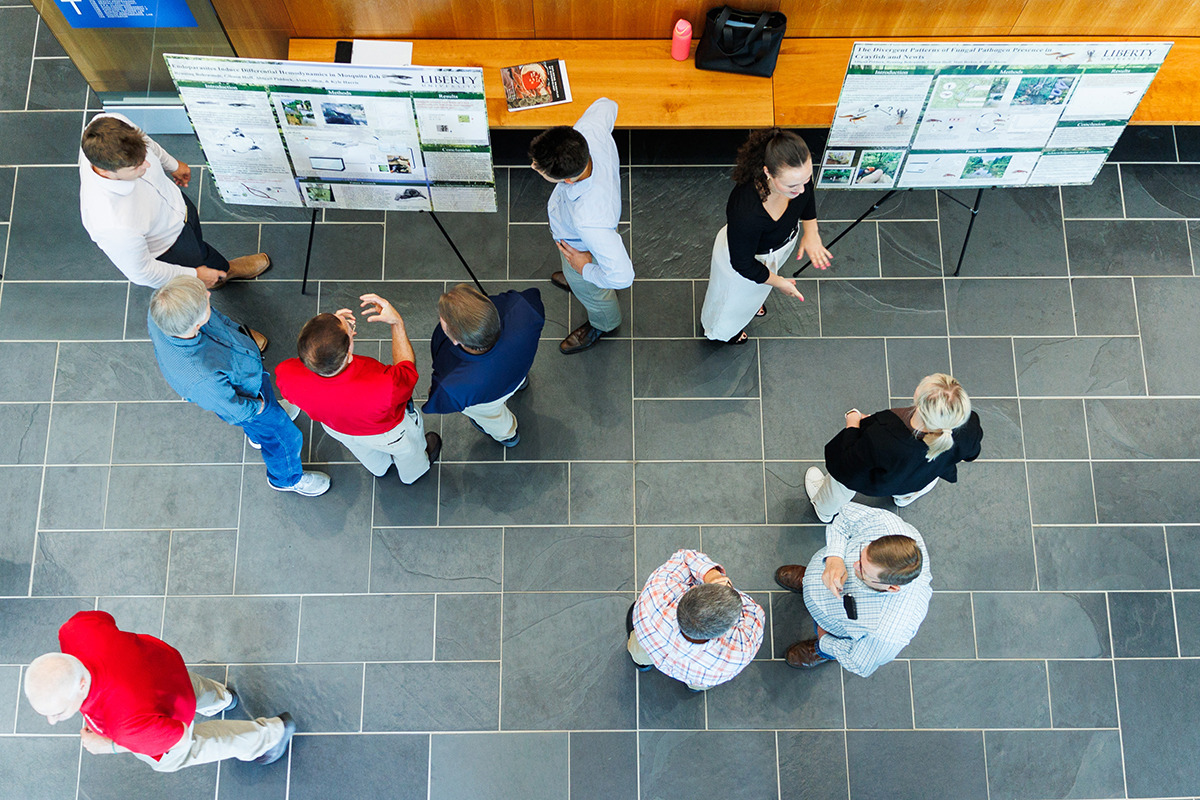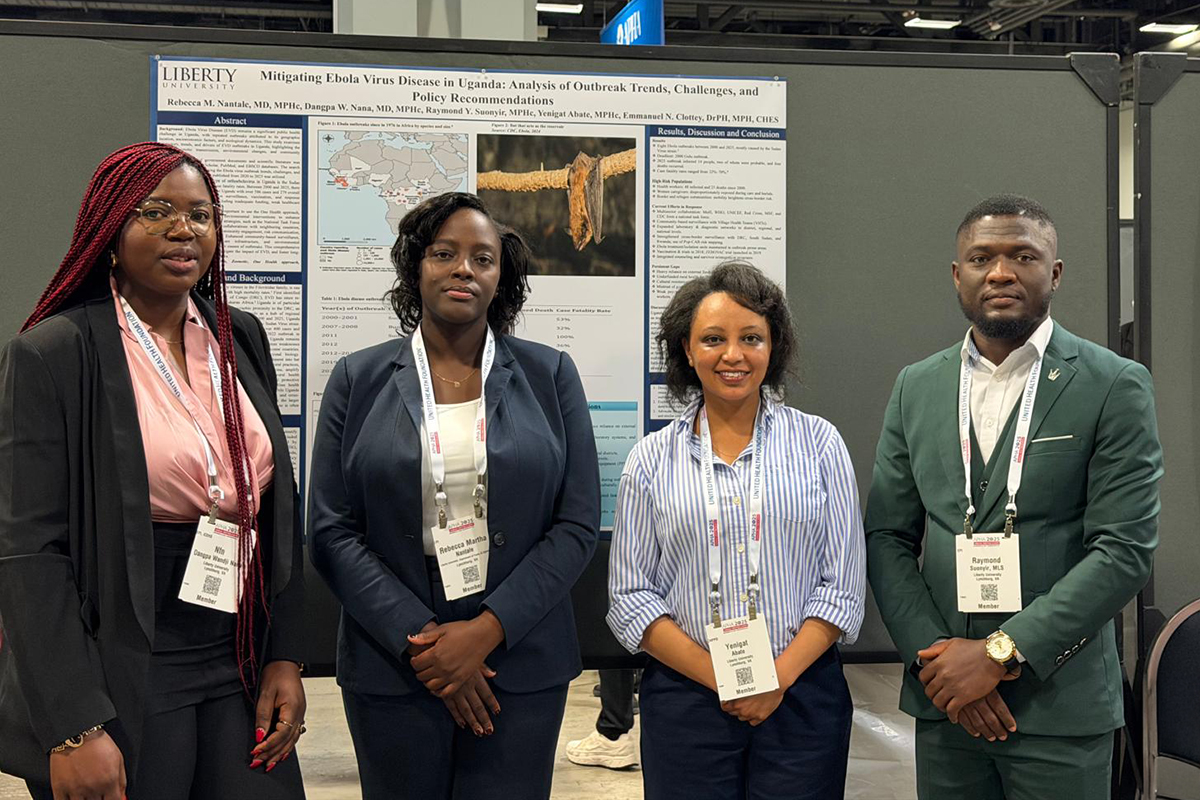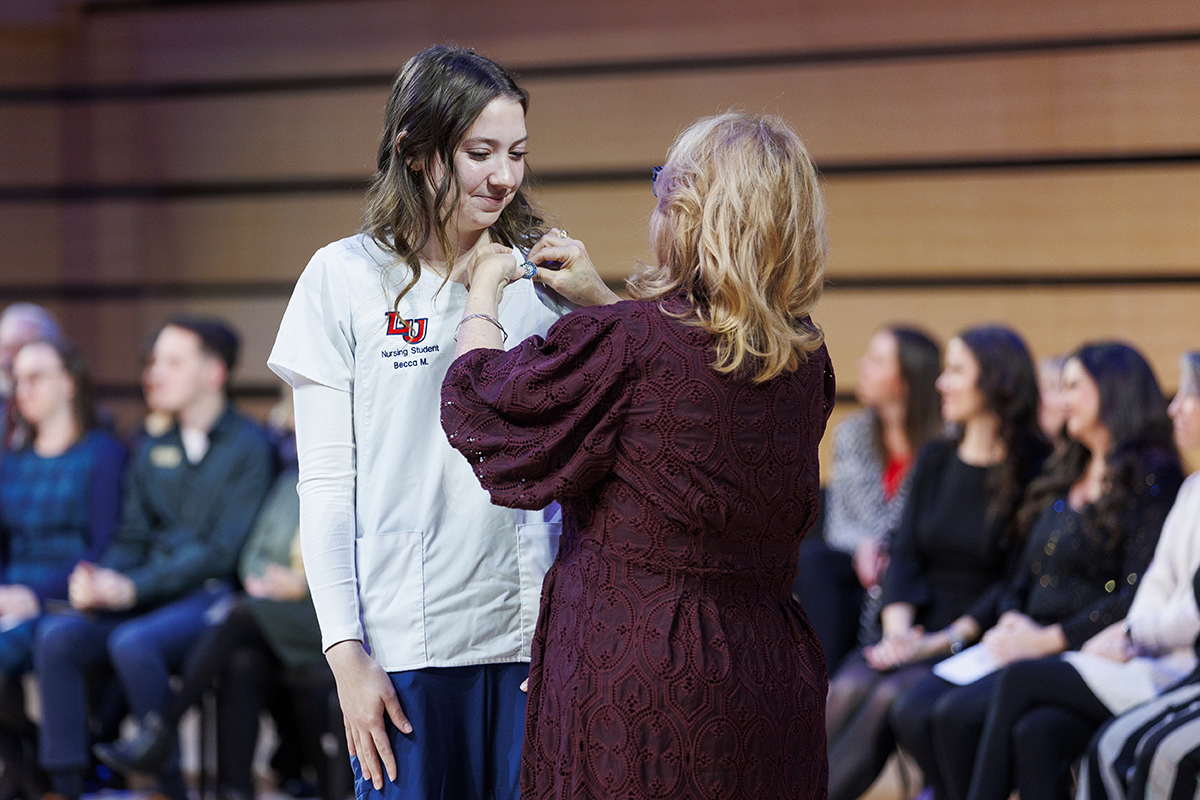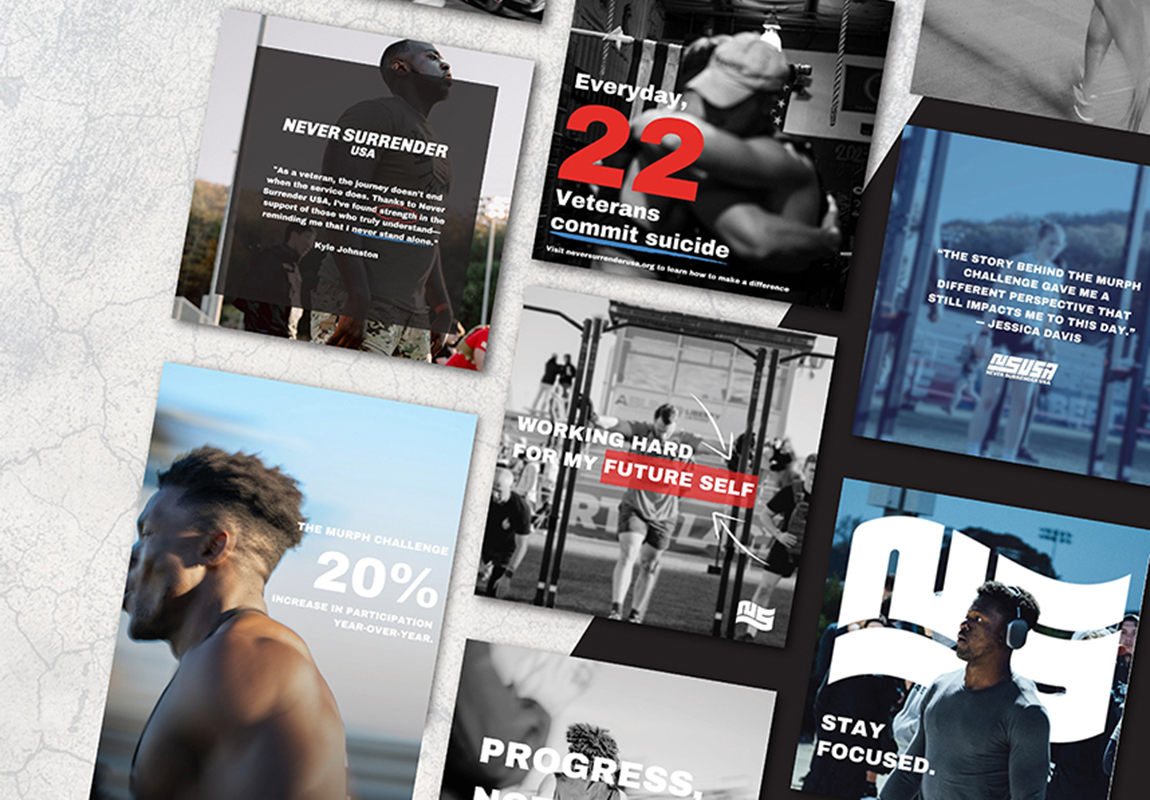Biology and chemistry students in Liberty’s ASSURE program showcase research
August 21, 2023 : By Ryan Klinker - Office of Communications & Public Engagement
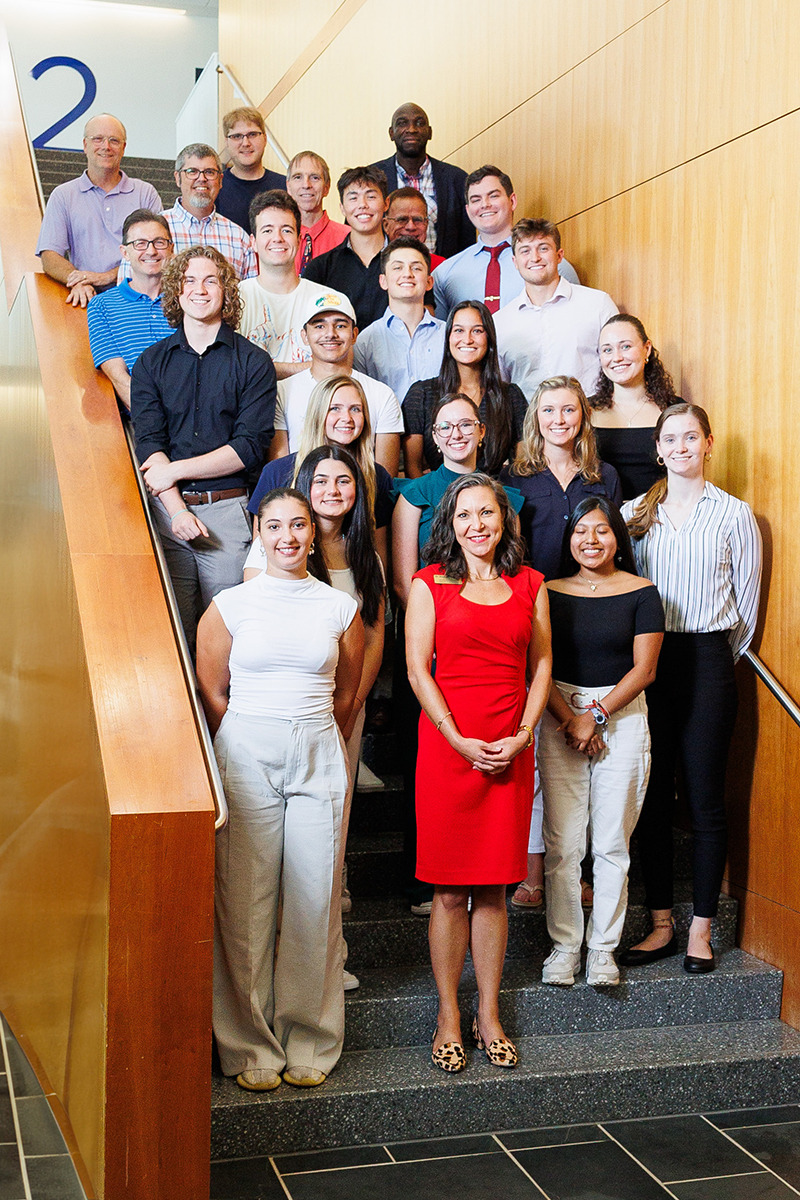
A selection of students and professors in Liberty University’s Department of Biology & Chemistry capped off the third year of the summer ASSURE program with a poster presentation last week in the Center for Natural Sciences, where they displayed a wide range of research areas and backgrounds.
ASSURE stands for Acquiring Skills for Students Underrepresented in Research Experience, and includes students from historically underrepresented demographic groups in the sciences (such as women, underrepresented ethnic groups, and first-generation college students). Groups of two to three undergraduate students are assigned to a professor for six weeks to engage with new or existing studies and receive valuable mentoring. This was the third year of the program. Nineteen students and seven professors conducted research across a wide variety of scientific disciplines, including synthetic organic chemistry, ecology, genetics, cell biology, and human performance.
“These undergraduate students get to have direct interactions with our faculty and receive mentoring from them, and this gives the students a solid foundation for them to build off of as they continue studying in the sciences,” said Dr. Ben Kalu, chair of Biology & Chemistry. “They can even get a leg up to advancing their careers — getting into internships, medical school and graduate programs, and new opportunities — and succeed in their field.”
“The ASSURE program is an invaluable experience for both our students and for the faculty mentoring them on their projects,” added School of Health Sciences Dean Dr. Heidi DiFrancesca. “It helps to solidify a greater excitement and deeper passion for their discipline and reinforces their decision to pursue their chosen major. In addition to developing academic depth, research is a platform enabling the development of key transferable skills, including critical thinking, problem-solving, communication, collaboration, and independence that can be applied to the academic journey and beyond.”
Senior Seth Woodfin, who is studying biomedical sciences after serving in the United States Marine Corps, said the opportunity to advance his own ability and experience is also a chance to show other veterans that they belong in the sciences too.

“With my peer group and background, there aren’t a lot of opportunities for veterans to get involved in scientific research and upper-level education,” Woodfin explained. “To me, getting my feet wet with this hopefully can motivate other Marines and military members that this can be done.”
Led by Associate Professor of Biology Dr. William Moore, Woodfin and two other students searched for compounds that behave similarly to insulin and could become an additional aid to individuals with Type II diabetes. While he has spent some intermittent time in labs as part of his major, Woodfin said ASSURE allowed him to regularly have his hands on equipment and develop new skills.
“In the science curriculum, you don’t usually get a lot of exposure to the type of equipment we were using,” he said. “This is an ongoing project that we were able to continue throughout the time of this program, routinely being in the lab and doing this research. That’s something you don’t usually get in the curriculum labs, where we usually get introduced to something but then have to immediately move on to something else. We got to reignite some things we’d already been taught, but we also got to learn new things and grow in that way.”
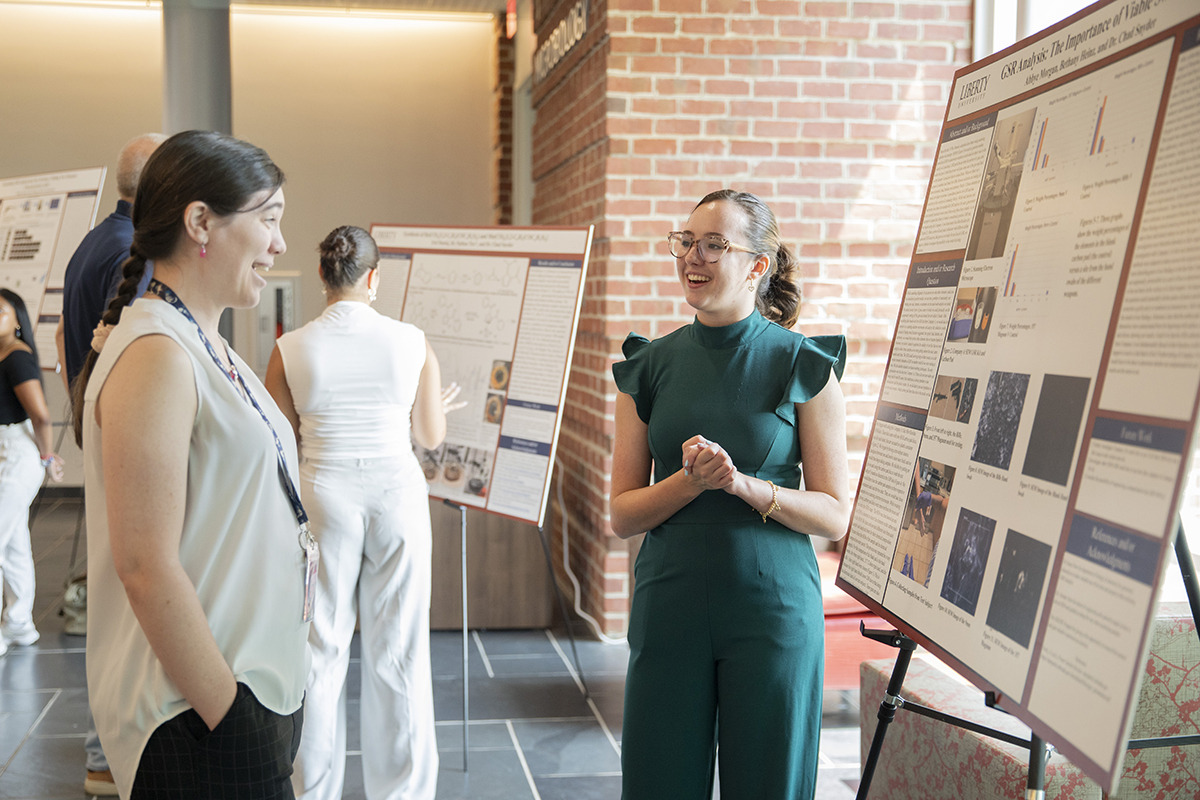
In studying the residue of gunshot shells with the possibility of finding a new element, forensic science junior Bethany Heinz was able to combine her fascination in the topic with an opportunity to grow as a professional in the lab setting.
“I saw the ASSURE program as a great resource that Liberty offered to not only expand my research skills but also my participation skills, and I knew I’d get to be mentored by the amazing leaders we have here in our school,” Heinz said, who was mentored by Professor of Chemistry Dr. Chad Snyder. “It has been such a blessing to conduct research that I’m genuinely interested in. I have always been interested in forensic science. I love a good mystery, seeking answers, and I know that doing this is going to help me out in the world. That gives me hope that I’m doing something that matters. I’ve definitely gained research skills, and I’ve been more comfortable with failure and being wrong because I’ve been able to use those to propel myself forward and learn more.”
ASSURE is funded by a grant from Liberty’s Center for Research and Scholarship (CRS) and supported by the Provost Office.
“CRS supports the ASSURE program with funding due to its focus on assisting students from underrepresented demographic groups in developing research skills that allow them to successfully matriculate through Liberty’s undergraduate and graduate programs in biology and chemistry,” said CRS Director Dr. Darren Wu. “This experience ultimately enables them to contribute to the scientific profession and impact the world around them for Christ.”
